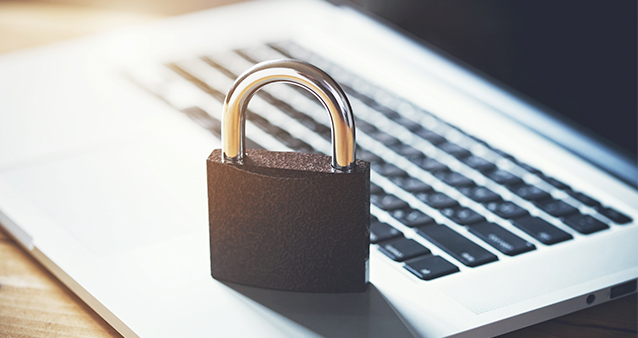How To Secure Your Computer

Cybercrime is spiking, and your home and work devices, which are often one and the same, need extra protection, especially when it comes to computer safety.
In these days of remote working, chances are that the laptop that houses your Top Secret Business Documents is the same machine that runs your 13-year-old's all-night Minecraft marathons. How do you effectively secure your computer – and your sensitive information – in an age of blurred work/life divides and escalating cybercrime?
"A good way for hackers to access a corporate network right now is when employees use corporate equipment for personal tasks, or when they use corporate networks through unsecured or poorly secured personal devices," explain the experts at cybercrime giant Kaspersky, which offer solutions like VPNs and antivirus software.
This means that IT and data security teams may have less information around and control over corporate data use... and that's good news for cyber criminals.
Cybercrime on the Rise
In fact, Kaspersky's research shows that incidents across Africa caused by malware (an umbrella term for many types of cyber threats) topped 28 million incidents by August 2020, just six months into the pandemic and lockdown.
"This means countries, organisations, and individuals must always be cognisant of the threat of cybercrime, which will only grow as technology becomes more sophisticated," Kaspersky's experts say. "Regardless of your company size, geographic location, or industry sector, you will be targeted by hackers."
Hackers have also become skilled at using your personal data for their own ends. "Cybercriminals hunt for data of all kinds – personal details, photos, videos, and even ways that users interact with others," Kaspersky warns. "This data is often stolen from social networks. In turn, stolen data is frequently posted elsewhere online to be sold to other criminals looking to make a profit."
How to Secure Your Computer
So how can we protect ourselves? Be careful, especially when it comes to social media. "Always be vigilant about what you share online or make available on your social profile," say the experts at Kaspersky. Also, ensure you've installed the latest antivirus software for your PC that's compatible with the programmes you use.
When it comes to gaming, video conferencing software and e-learning platforms, ensure you only buy titles from official sources to avoid installing malware. "In the rush to install Zoom and other solutions, there is also the potential to fall for fake apps," Kaspersky warns, pointing to research that found malicious files incorporating the names of these services in their file names to dupe users into installing malware. Again, stick to the official sites.
If you're running a business, adopt a cloud-based security solution for computer safety. "Even small companies should protect themselves from cyber threats, regardless of whether employees work on corporate or personal devices," Kaspersky advises.
During the extended lockdown, there's a good chance that you have your work computer at home, or are using your home computer for work. Either way, beware of the risks. "Although the ability to do so much online is incredible, the reality is, where people go, cybercriminals follow," Kaspersky's experts warn. "If an opportunity exists to exploit a situation and lure people into disclosing personal data or relinquishing their money, you can guarantee that cybercriminals will be working on it."
They might even target your kids. Think about it: if your child is using your computer, they could easily click on the wrong link. Your best approach here is honest, open communication. "You should also make your kids feel comfortable coming to you on those instances where they frankly were a kid, messed up and did something wrong," Kaspersky advise. "Chances are that you did something you should not have on the web, either in your youth or recently. So, if you think logically, your kids may do the same."
It might happen when they (or, let's face it, you) are gaming. In South Africa an estimated 10% of gamers have had their ID stolen, with gamers facing many of the same security risks that businesses face. "For example," Kaspersky's experts point out, "scammers use the same phishing tactics to trick people out of their credit card numbers, bank passwords, and other account logins."
Here the advice is (again) to only buy titles from official sources to avoid installing malware. But you could also financially separate your gaming life from your real life. "Using a dedicated card for your gaming purchases that can be topped up as required means that even if you do get compromised, the amount of money that can be potentially stolen would be kept to a minimum," Kaspersky suggest. "Of course, setting up two-factor authentication for the account is essential to mitigate against the risk of password compromises."
With your cybersecurity solutions in place, you'll want to invest in a fast, reliable Internet connection. Use our online tools to compare home fibre and business fibre deals.
This article is for informational purposes only and should not be construed as financial, legal or medical advice.
Hippo Blog Categories

































